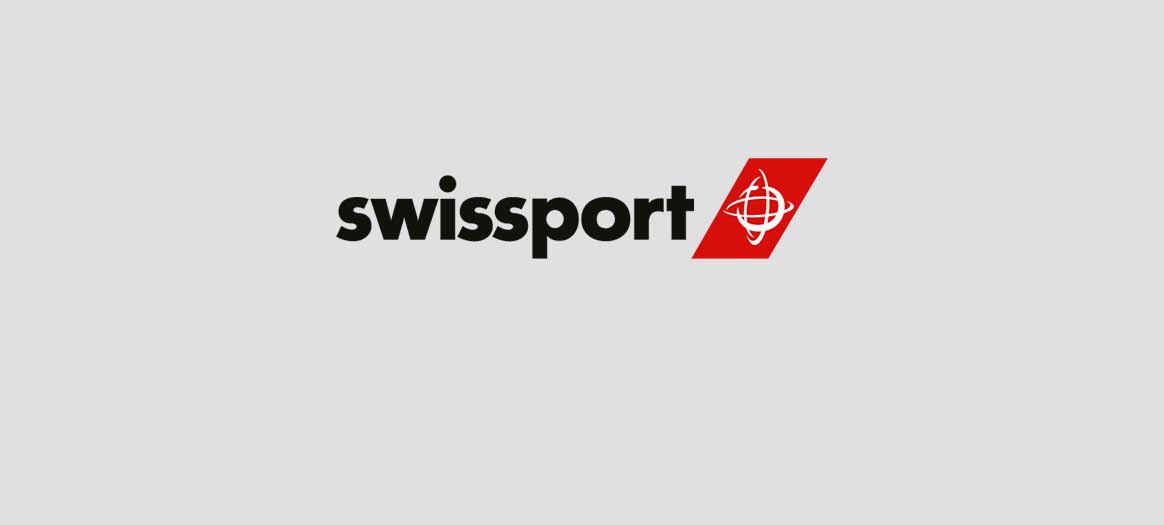Procurement in Motion: Raul Jodar on Driving Global Value and Sustainable Impact at Swissport
As the aviation industry accelerates its transformation, procurement has emerged as a key strategic lever, shaping sustainability outcomes, enabling operational efficiency, and driving innovation at scale. Raul Jodar, Global Procurement Manager at Swissport, brings a fresh perspective to the role, drawing on over a decade of experience in the automotive sector with SEAT and CUPRA, where speed, scale, and supply chain complexity were the norm.
Now leading Swissport’s global procurement transformation, Raul is focused on harmonising processes, embedding ESG across sourcing decisions, and building a data-driven, future-ready procurement function. In this exclusive interview, he shares insights on supplier collaboration, digital enablement, electrification, and how procurement is evolving to support Swissport’s long-term growth, resilience, and sustainability goals.
Click below to access the digital version
Professional Journey: Can you walk us through your career path and what led you to your current role as Global Procurement Manager at Swissport?
I began my procurement career in the automotive industry, spending over ten years with SEAT and CUPRA, both brands within the Volkswagen Group. This gave me deep experience in sourcing, supplier management, and global operations. At CUPRA, I was involved in launching the brand from the ground up, which required building the supplier base and procurement strategy under tight timelines. Additionally, the industry-wide shift toward electrification pushed us to adapt our sourcing strategies to emerging technologies and new innovation models.
These challenges taught me how to lead cross-functional teams, manage supplier networks, and adapt quickly to change. The environment demanded rigour, speed, and innovation, all while maintaining strong performance under pressure.In 2024, I joined Swissport as Global Procurement Manager. While aviation is a new industry for me, it shares key traits with automotive: global scale, speed, and complexity. I’ve been able to apply my background to help accelerate procurement transformation, bringing in structured processes and a forward-looking approach. My goal is to position procurement as a driver of long-term value, not just a cost-control function.
Role of Procurement in Business Transformation: How does your role support Swissport’s global strategy and operational excellence, and what are some of the key procurement transformation priorities you oversee?
At Swissport, procurement is a core enabler of operational excellence and global scalability. One of my main responsibilities is leading the shift from a fragmented procurement landscape to a globally harmonised model. This includes implementing category management, standardising processes, and improving spend visibility across the organisation.
We focus on developing sourcing strategies that align with business objectives while delivering cost savings and reducing risk. For instance, in categories like temporary labour, we’ve consolidated suppliers and introduced more structured evaluation criteria to drive quality and ensure service consistency.
Procurement is no longer viewed as purely transactional. Our teams now work closely with operations and commercial stakeholders to influence decisions early in the process and ensure long-term value. As Swissport continues to expand, procurement must evolve in parallel, becoming more efficient, strategic, and resilient, while upholding compliance and fostering innovation in every aspect of our work.
Sustainability is a key focus for Swissport. Can you share how the company’s Sustainable Sourcing Policy has been implemented and what tangible outcomes you’ve seen so far?
At Swissport, sustainability is central to our procurement strategy. Through our Sustainable Sourcing Policy, we integrate ESG criteria into supplier selection, renewals, and performance evaluations. This ensures we work with partners who align with our environmental and social standards.
We’ve seen tangible progress through increased engagement with certified suppliers, a reduction in the use of high-emission materials, and a growing awareness of sustainability within our internal teams.
We’re also making strides on Scope 3 emissions by collaborating with key suppliers to improve data sharing and transparency. Additionally, our procurement teams receive ESG training to embed sustainability considerations early in the sourcing and decision-making process.
Ultimately, our goal is to make responsible sourcing a lever for competitive advantage, not just a compliance exercise.

Risk Management in Procurement: Swissport screens suppliers for ESG compliance, legal risk, and sustainability performance. How do you manage supplier risk and ensure responsible sourcing across a complex global supply chain?
Managing supplier risk at Swissport requires a proactive and multi-layered approach. We screen strategic suppliers for ESG compliance, financial stability, legal risk, and operational performance. To maintain an up-to-date view of our risk exposure, we combine internal assessments with third-party data and monitoring tools.
Beyond initial screening, we emphasise continuous engagement. We hold regular reviews with critical suppliers to assess performance, address any emerging risks, and reinforce expectations around responsible sourcing. By embedding these principles into every phase, from supplier selection to ongoing evaluation, we’re building a supply chain that is not only resilient and transparent but also fully aligned with Swissport’s business values and long-term sustainability goals.
AI and Automation in Procurement: With the adoption of AI-powered accounts payable and digital invoice processing at Swissport, how is your procurement team leveraging automation to drive efficiency and transparency?
We’re leveraging automation to streamline procurement operations and enhance decision-making. Beyond accounts payable and digital invoice processing, we’re also exploring automation in areas like spend analytics and contract lifecycle management to further increase efficiency and transparency.
These digital capabilities provide faster insights and free up capacity across the team, making procurement more agile and better aligned with the pace of the business. Ultimately, automation isn’t just about speed, it’s about enabling smarter, data-driven sourcing decisions that add long-term value.
Green Procurement and Electrification: Swissport is committed to procuring more electric ground support equipment (eGSE). How are procurement decisions supporting the company’s carbon reduction goals while balancing cost and operational efficiency?
Swissport’s carbon reduction goals are directly reflected in our procurement practices, particularly in the electrification of ground support equipment (eGSE). Our procurement team leads the sourcing of electric vehicles and supporting infrastructure, working closely with OEMs and internal stakeholders across functions.
Each airport presents unique operational requirements, so balancing sustainability with feasibility is essential. We ensure that eGSE investments are evaluated based on lifecycle cost, emissions impact, and technical readiness, not just upfront price.
To reinforce this strategy, we’ve developed supplier frameworks that prioritise electric models and reward innovation. For us, green procurement is not just an environmental initiative, it’s a strategic priority that supports long-term operational performance and resilience.

Partnerships and Collaborations: Swissport’s success is closely tied to its supplier and partner ecosystem. How do you approach strategic collaborations with core partners, and what makes a supplier relationship truly successful?
We view suppliers as long-term partners, not just service providers. Strong relationships are built on transparency, shared goals, and early involvement in the process.
At Swissport, we engage core suppliers at the planning stage, involve them in solution design, and align on performance metrics from the outset. This collaborative approach allows us to co-develop solutions and respond more flexibly to evolving business needs.
One recent area of focus has been international training and upskilling, working with select partners to develop content and delivery models that support our global workforce. These types of initiatives help us scale operational excellence while maintaining consistency across regions.
The most successful partnerships are those that grow with us adapting to our requirements, introducing innovation, and demonstrating a shared commitment to continuous improvement.
Collaboration Across Business Units: How do you align global procurement strategies with regional teams and internal stakeholders to ensure agility, compliance, and value delivery at scale?
To ensure alignment across regions, we integrate global strategies with local insights. Our governance model includes early engagement with regional procurement leads and internal stakeholders, creating a platform for collaboration from the outset.
This approach allows us to develop sourcing strategies that reflect both global objectives and the operational realities on the ground. By combining central direction with regional flexibility, we’re able to move with greater speed and precision.
The model promotes accountability, accelerates execution, and ensures that procurement consistently delivers value, compliance, and agility at scale.
Training and Capability Building: Swissport includes sustainability and ESG training for its procurement teams. What capability-building initiatives are you prioritising to ensure your team remains future-ready?
We’re investing in upskilling our teams to prepare for the future of procurement. This includes targeted training in ESG principles, digital procurement tools, negotiation techniques, and category management best practices.
We also foster knowledge sharing across regions through internal networks, creating a culture of collaboration and continuous learning. The goal is to build a team of procurement professionals who are confident, strategic, and adaptable in a rapidly evolving environment.
Empowering our people is essential to staying competitive and delivering long-term value across Swissport’s global operations.
Future Outlook for Procurement at Swissport: Looking ahead, what are your strategic priorities for procurement at Swissport, and how do you see the function evolving over the next five to ten years?
Procurement at Swissport is becoming increasingly strategic and technology-driven. Our future priorities include expanding the use of digital tools, enhancing data analytics capabilities, and embedding ESG considerations into every sourcing decision.
We aim to become more predictive and collaborative, anticipating risks, identifying opportunities, and contributing directly to sustainable growth.
In the next five to ten years, procurement will play a central role in Swissport’s transformation by orchestrating value across cost, service, and innovation. It will evolve from a support function into a true strategic partner within the business.
In Association with

Travod is a full-service language solutions and localisation company, helping global brands communicate in over 100 languages. They combine AI-powered workflows with expert human linguists to deliver precise, culturally relevant content across industries including manufacturing, software, marketing, and e-commerce. Their services include translation, transcreation, desktop publishing, media localisation, API integrations, and machine translation. With ISO-certified processes and agile technology, Travod ensures fast, reliable, scalable multilingual content delivery.












